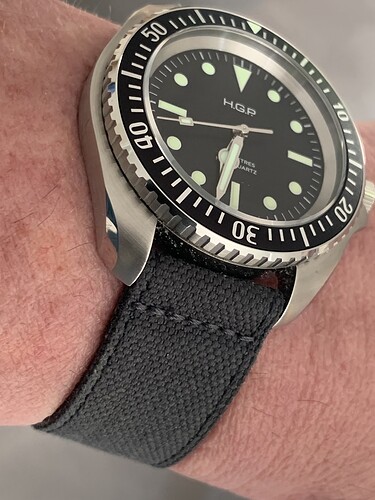Marcel Hulspas schrijft vandaag een uitstekende column over Thierry Baudet en diens onzinnige oproep om over de islam te generaliseren.
Ik wil deze column aanvullen met informatie over Paul Cliteur, de leermeester van Thierry Baudet, een fervente advocaat van het stigmatiserende generaliseren.
Ik herhaal hieronder een oude blog van mij uit 2007.
Wie zich over de conservatieve en semi-racistische broedplaats van Nederlands uiterst rechts aan de Leidse Rechtenfaculteit (Baudet, Cliteur, Kinneging, Ellian) wil informeren, kan dit doen op mijn talrijke blogs over dit thema en op mijn internetpublicatie over de Leidse Edmund Burke Stichting.
——————————————————————————
Generaliseren en stigmatiseren in de naam van Plato
(herhaling van 12-12-2007)
De neocon Paul Cliteur probeert zijn polariserende generalisaties te verkopen als wetenschap:
“Wetenschap is generaliseren. Filosofie ook. Wie bij de particuliere geaardheid van de dingen wil blijven staan zal nooit wetenschapper worden.”[1]
Daarop zeg ik: Ook wie alleen maar of te veel generaliseert is geen goede wetenschapper. De wetenschap bestaat in een dialectisch proces dat afwisselend generaliseert en specificeert/nuanceert/differentieert. Wie over maatschappelijke tegenstellingen alleen maar generaliseert, die polariseert en discrimineert.
Kritiek mag en moet, polemiek ook. Kritiek moet specifiek zijn, en zo min mogelijk generaliseren. Cliteur:
“Wat mij ergert, is dat men mij het recht om generaliserende uitspraken te doen, wil ontzeggen.”[2]
Niemand wil hem een recht ontzeggen. Maar kritiek op hem moet geoorloofd zijn, omdat generaliserende uitspraken maatschappelijk onnodig polariserend werken.
Trots zegt Cliteur over zijn eigen doelstellingen:
“Stigmatiseren is zeker ook de bedoeling!”( Tegen de decadentie, p 41)
De tot maxime verheven generalisaties van Cliteur en zijn mede-Burkianen zijn filosofisch een gevolg van een radicaal Platoons denken, ook wel “essentialisme” genoemd.
“[Cliteur]: Ik ben een idealist.”“Cliteur [vindt] De Staat van Plato nog altijd één van de belangrijkste filosofieboeken aller tijden. Hij beaamt de kritiek die vaak op De Staat te horen is, dat het een antidemocratisch en zelfs een totalitair geschrift is. ‘In dat boek zijn de meest krankzinnige dingen te vinden.’ Maar wat hem zo aanspreekt, is de gedachte dat de staat gericht moet zijn op een bepaald ideaaltype van de staat, in ons geval de rechtsstaat. Dat idealisme vindt Cliteur ‘een mooi contrapunt voor een wijdverbreid cynisme dat in de samenleving aanwezig is. De meeste commentaren die tegenwoordig op de internationale politiek worden gegeven zijn doordrongen van een heel diep pessimisme. […] Achter zo’n humanitaire actie in Irak bijvoorbeeld, kán daarom [volgens critici] niets anders zitten dan oliebelangen. Het idealistische wereldbeeld staat daar tegenover. Daarin wordt aangenomen, dat ook staten zich kunnen laten leiden door ideële overwegingen. Het verbreiden van democratie, mensenrechten en de scheiding van kerk en staat als universele uitgangspunten, dat gaat uiteindelijk terug op platoons erfgoed, in die zin dat het idealen in deze wereld wil verwerkelijken.’ ” (Filosofie Magazine, 9-2004)
Cliteur:”‘Ik ben steeds radicaler geworden. Ik heb wat dat betreft een omgekeerde ontwikkelingsgang als Plato doorgemaakt. Plato schreef eerst De Staat, een erg radicaal boek, en daarna De Wetten, dat veel gematigder is. Ik begin juist steeds meer onvolkomenheden te zien. Sommige zaken zijn zo structureel verkeerd, dat je hard moet rammen om er doorheen te komen. Dat is een taak die ik mijzelf gesteld heb.‘ ” “(Filosofie Magazine, 9-2004)
Karl Popper heeft in zijn The open society and its enemies – een zeer kritische bespreking van Plato’s Staat – het begrip ‘essentialisme’ voor het Platoonse denken gebruikt. Daarom is het interessant de argumentatie en definitie bij Popper nog eens na te lezen:
“I use the name methodological essentialism to characterize the view, held by Plato and many of his followers, that it is the task of pure knowledge or ‘science’ to discover and to describe the true nature of things, i.e. their hidden reality or essence. It was Plato’ s peculiar belief that the essence of sensible things can be found in other and more real things-in their primogenitors or Forms. Many of the later methodological essentialists, for instanee Aristotle, did not altogether follow him in this; but they all agreed with him in determining the task of pure knowledge as the discovery of the hidden nature or Form or essence of things. All these methodological essentialists also agreed with Plato in holding that these essences may be discovered and discerned with the help of intellectual intuition; that every essence has a name proper to it, the name af ter which the sensible things are called; and that it may be des cri bed in words. And a description of the essence of a thing they all called a ‘definitiori’ . According to methodological essentialism, there can be three ways of knowing a thing: ‘I mean that we ean know its unchanging reality or essence; and that we can know the definition of the essence; and that we can know its name. Accordingly, two questions may be formulated about any real thing … : A person may give the name and ask for the definition; or he may give the de finition and ask for the name.’ As an example of this method, Plato uses the essence of ‘even’ (as opposed to ‘odd”): ‘Number … may be a thing capable of division into equal parts. If it is so divisible, number is named “even”; and the definition of the name “even” is “a number divisible into equal parts” … And when we are given the name and asked about the definition, or when we are given the definition and asked about the name, we speak, in both cases, of one and the same essence, whether we call it now “even” or “a number divisible into equal parts”.’ After this example, Plato proceeds to apply this method to a ‘proef concerning the real nature of the soul, about which we shall hear more later.
Methodological essentialism, i.e. the theory that it is the aim of science to reveal essences and to describe them by means of definitions, can be better understood when contrasted with its opposite, methodological nominalism. Instead of aiming at finding out what a thing really is, and at defining its true nature, methodological nominalism aims at describing how a thing behaves in various circumstances, and especially, whether there are any regularities in its behaviour. In other words, methodological nominalism sees the aim of science in the description of the things and events of our experience, and in an ‘explanation’ of these events, i.e. their description with the help of universal laws.” ( p 29 f)
“As indicated by our example, methodological nominalism is nowadays fairly generally accepted in the natural sciences. The problems of the social sciences, on the other hand, are still for the most part treated by essentialist methods. This is, in my opinion, one of the main reasons for their backwardness.”
The most important meaning which he attaches to it is, I believe, practically identical with that which he attaches to the term ‘essence’. This way of using the term ‘nature’ still survives among essentialists even in our day; they still speak, for instance, of the nature of mathematics, or of the nature of inductive inference, or of the ‘nature of happiness and misery. When used by Plato in this way, ‘nature’ means nearly the same as ‘Form or ‘Idea': for the Form or Idea of a thing, as shown above, is also its essence. ‘” ( p 75 f)
“Thus the terms ‘nature’ and ‘race’ are frequently used by Plato as synonyms, for instance, when he speaks of the ‘race of philosophers’ and of those who have ‘philosophic natures': so that both these terms are closely akin to the terms ‘essence’ and ‘soul’. ” ( p. 77)
Bij Plato al is de term “ras” gebonden aan dit idealistische denken. Naar mijn mening is veel van het huidige dualistische cultuur- en religie-denken en vorm van cultuurracisme.
Zie ook mijn veelgelezen blog “Racisme zonder ras“
[1] De onuitstaanbare leegte van links, Trouw 17-1-2004, http://www.civismundi.nl/Civis_Mundi_opinie/Cliteur_opinie_De_onuitstaanba/body_cliteur_opinie_de_onuitstaanba.html [2] Hutspot Holland, p. 182.
The post Platoons semi-racisme appeared first on Wetenschap Kunst Politiek.



![[TK] Breitling Avenger in zeer mooie staat €2250,- [TK]](http://files.s3.horlogeforum.nl/uploads/db9961/optimized/4X/0/4/f/04f8eca84f2411bd1b9f2fe88b7b255f0e317d7d_2_375x500.jpeg)
![[TK] Breitling Avenger in zeer mooie staat €2250,- [TK]](http://files.s3.horlogeforum.nl/uploads/db9961/optimized/4X/8/a/a/8aa36e8c34c48527881c0d83307df3775272812c_2_375x500.jpeg)
















